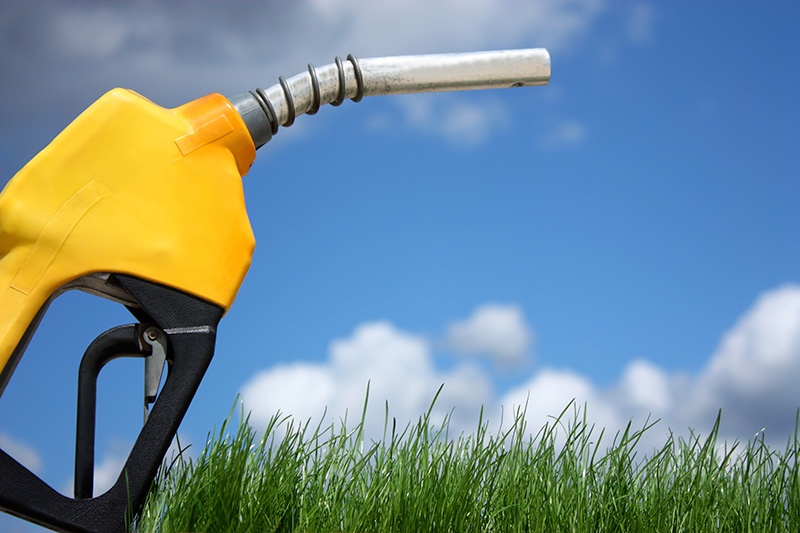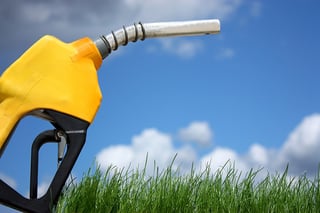Find Out About Alternative "Green" Fuel Options

 With budgets constantly under pressure and fighting for every penny, fleet managers must look for areas to stretch dollars, target savings and turn what could be considered a negative into a golden opportunity.
With budgets constantly under pressure and fighting for every penny, fleet managers must look for areas to stretch dollars, target savings and turn what could be considered a negative into a golden opportunity.Here’s some fuel for thought: With a fleet’s biggest expense being typically fuel, consider breaking away from gasoline and diesel and adapting an alternative fuel solution for your fleet. Alternative fuels can help maximize fuel efficiency, lower fuel costs, reduce pollutant emissions, bump-up your bottom line and yes, stretch those budget dollars.
Alternative fuels are nothing new. In fact, they have been available to fleets for many years. It is true that gasoline and diesel are currently the most widely used fuels by most fleets, if you were to talk with fleet managers who made the alternative fuel switch, they would probably tell you they wish they would have given their fleet the ”green light” sooner than they did. They might also pass along these benefits as key reasons for getting aboard the alternative fuels bandwagon:
- Tax Incentives: There are federal, state and local tax incentives to assist in alternative fuel transition. Also, tax credits are available for the infrastructure installation, purchase of alternative fuel vehicles and for the amount of fuel used.
- Reduced Fuel and Maintenance Costs: The price per gallon of alternative fuels such as natural gas and propane autogas is 50-70% of the cost of gasoline or diesel. Plus, clean-burning fuels mean less wear and tear on vehicles and longer engine life.
- Environmentally Friendly: Good for the environment, you get reduced greenhouse emissions without sacrificing horsepower and torque. With GHG and CO2 emissions a hot topic, more government regulations are certain to come into play. Looking down the road, compliance could become an issue.
- Less Dependence on Foreign Oil: Buy American. Reducing petroleum usage means less vulnerability to disruptions in foreign oil markets and fluctuations in oil prices.
Determining what alternative fuel solution is best for your fleet can be a confusing process, as there is no “one size fits all” answer. Do your homework, work with your fuel provider to determine a solution that helps you develop and achieve your sustainability goals and maximizes your fleet’s productivity.
To get you moving down the road, here is a homework “cheat sheet”—an Alternative Fuel 101—on some of the most widely used alternative fuel options available.
Biodiesel: Biodiesel is a clean burning fuel produced domestically from renewable vegetable oils, animal fats or recycled restaurant grease and is a cleaner-burning replacement for petroleum-based diesel fuel. Cost-effective and compatible with diesel engines, biodiesel is available in blends of up to 5% or 20% biodiesel, with B20 a common blend. Biodiesel is the first and only EPA-designated Advanced Biofuel in commercial scale production nationwide and the first to reach one billion gallons of annual production. It is produced in almost every state in the USA.
Compressed Natural Gas (CNG): CNG is suitable for alternative fuel vehicles that run on both types of CNG fuel systems. Vehicles using CNG include transit buses and fleet trucks and are either CNG-dedicated vehicles that operate solely on natural gas or dual-fuel vehicles that can use both natural gas and gasoline. An affordable and clean alternative to gasoline or diesel, CNG is widely available and can cut fuel costs by around 50% while delivering the same power and performance.
Ethanol: Ethanol is a domestically produced renewable fuel made from corn and other plant materials and is used in flexible fuel vehicles (FFVs). Widely available and relatively low-cost, ethanol-fueled vehicles produce lower carbon monoxide and carbon dioxide emissions. Ethanol is blended with gasoline in various amounts including E10, E15-20 and E85, which reflect the ethanol to gasoline ratio in the fuel from lowest to highest. For example, E10—10% ethanol and 90% gasoline.
Propane (LPG): Propane, also known as liquefied petroleum gas or propane autogas, has been used as a vehicle fuel for decades and is the world’s third most common engine fuel. Compatible with a wide range of vehicles, including light and heavy-duty trucks, buses, taxi cabs, police cars and rental and delivery vehicles, LPG burns cleaner than petroleum and costs approximately 30-40% less than gasoline.
